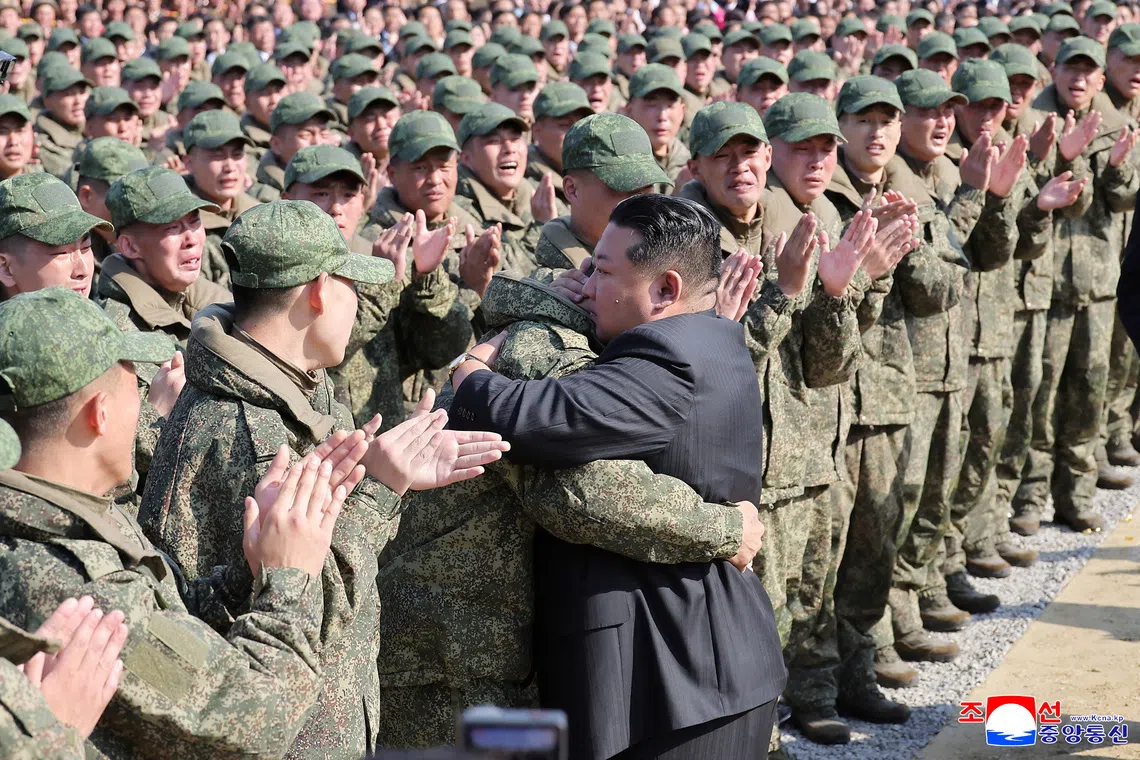Russia says North Korean troops play key role in de-mining its Kursk region
Sign up now: Get insights on Asia's fast-moving developments

North Korea last year sent some 14,000 soldiers to fight alongside Russia in Kursk.
PHOTO: REUTERS
MOSCOW - North Korean troops who helped Russia repel a major Ukrainian incursion into its western Kursk region are now playing an important role in clearing the area of mines, the Russian Defence Ministry said on Nov 14.
Under a mutual defence pact between the two countries, North Korea last year sent some 14,000 soldiers to fight alongside Russia in Kursk, and more than 6,000 were killed, according to South Korean, Ukrainian and Western sources.
Ukrainian forces smashed across the border in August 2024 and held on to substantial pockets of territory for months. Russian President Vladimir Putin said in April that Russia had finally pushed them out, with help from the North Koreans.
The significant North Korean role in Russia’s de-mining operations
Video published by the Russian Defence Ministry showed North Korean troops being shown different types of mines and mine detection equipment, taking part in training exercises and singing patriotic songs.
“They're great lads, they learn quickly, listen attentively and take notes,” said a Russian commander with the call sign Veles.
A second commander with the call sign Lesnik said: “They are on an equal level with my sappers, carrying out the same tasks as my lads.”
Russian military news outlet Krasnaya Zvezda said the Russian and North Korean soldiers were dealing with a “previously unseen density” of anti-tank and anti-personnel mines left behind by Ukrainian forces in Kursk. It said many of the devices had been manufactured by Nato countries.
In the Bolshesoldatsky region of Kursk, 37 out of 64 settlements were still no-go areas for civilians because of the danger from mines, it said.
The sappers were coming under attack by Ukrainian artillery and drones while carrying out their work, according to the report, which Reuters could not independently verify.
Kremlin spokesman Dmitry Peskov told reporters that Moscow was grateful for the “selfless, heroic assistance”.
“We will never forget this help. This work continues. It is dangerous and difficult, but our Korean friends are truly helping us, and we greatly appreciate it,” he said. REUTERS


